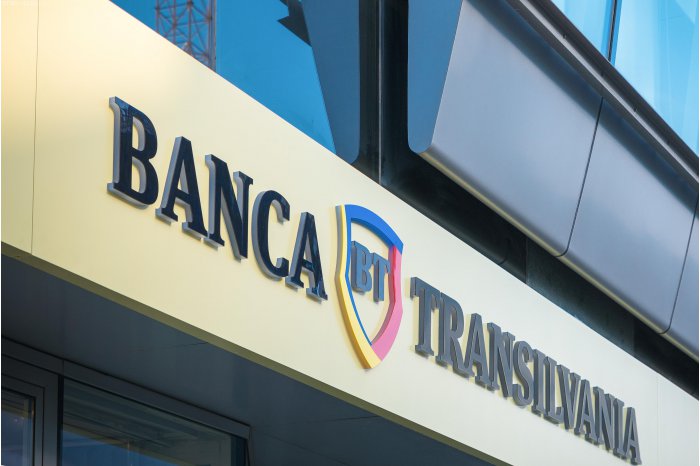Why does Romanian bank come to Moldova?
11:48 | 20.01.2018 Category: Economic
The economic commentary of State Information Agency (AIS) MOLDPRES
The strengthening of supervisory and regulatory framework into banking sector over recent two years has had an increasing obvious effect upon banks’ future.
The entry of Banca Transilvania (BT) into Moldova and acquisition of a 39.2 per cent stake in Victoriabank, third largest bank in Moldova, beyond financial and investment aspects, as well as development and financing intentions, proves that change which occurred within banking system.
An investor, especially one with a European passport, does not enter a regulated market, such as a bank, where there are no clear rules and standards at least comparable to those in force in the country where it comes from. A communiqué broadcast by BT mentioned that “for the first time within recent decade, when a bank outside Moldova is investing into market, BT opens the way for investments in a neighbouring country.”
More importantly, however, it is probably the fact that the investor comes after the shock that caused the bank fraud in 2014, huge image deficit suffered by Moldovan banks after devaluation of three financial institutions. That would mean that the critical image margin has been overcome. There are other banks with European passports, ProCreditBank, Eximbank, Mobiasbanca – Groupe Societe Generale and Romanian Commercial Bank (BCR), but investments in these banks were made in moments of calm in the system.
BT comes after a "storm" that shook investors’ confidence. But things changed for better. The International Monetary Fund (IMF) mission in early November 2017 noted that "although significant progress has been made in the area of financial sector clearance, including strengthening supervisory and regulatory framework, improving management and increasing shareholders' transparency, situation diagnosis at the banks’ level". And the board of directors, which examined the mission report on 20 December, appreciated as "serious recovery within financial system."
The issue which really matters is that Romania’s second – largest bank came to Moldova by support of EBRD. "We are very proud to be able to attract a strong strategic partner, such as BT, as a shareholder in Victoriabank," said EBRD Director for Western Balkans, Belarus, Moldova and Ukraine, Henry Russell. It is also a signal to other investors, especially when trying to sell substantial stock of shares held with non – compliance with the shareholders' requirements in two top banks.
"Our banking system needed a champion of change. After crisis in 2014, when BNM tightened the supervision over commercial banks, we find that our banks can not offer loans under new conditions. We have a blockage: citizens have slowly restored confidence in banks, deposits are on the rise, and lending is stagnating for the third year. As a result, banks suffer from excess liquidity without strategies and clear capacities to increase the volume of loans offered to economy," says economic expert Veaceslav Ionita.
According to him, BT "will certainly have an aggressive policy to increase its credit portfolio and become an agent for changing our banking system. BT grew in Romania due to the aggressive lending policy of small and medium-sized companies. This strategy was assisted by a modern management system, performing technologies and internal capabilities to work with business environment."
The EBRD already manifested its readiness to resume lending for small and medium – sized enterprises (SME) in Moldova by granting loans to Victoriabank. And BT announced its priorities as a shareholder with EBRD, including supporting the private business environment, especially micro and SME, developing a variety of products and services for individuals, aligning organizational culture and Victoriabank corporate governance with those of Financial Group of Banca Transilvania.
"The entry of Transilvania Bank means transposing business standards and corporate management," says economist Roman Chirca. He points out that modernizing of banking system by attracting EU banks, as well as major international banks, is a feasible strategy. The same opinion has got EBRD Director, Henry Russell, who mentions that "it represents an important step towards restructuring and modernizing of financial sector of Moldova". "The capital from West brings European rules and management. The arrival of a strong player in a country on a particular field means modernizing the game rules," says economist Veaceslav Ionita. He adds that coming of a private investor leads to better management not only in a company but also in rest companies. However, the Executive Directors of the IMF noted in December 2017, the Moldovan banking sector had yet to face many problems for the progress made to become irreversible. The next critical steps include the transfer of property rights to the "problematic" actions of the largest banks towards shareholders meeting the conditions of honesty and competence, further clearance of banks' balances and improvement of risk management procedures to allow efficient financial intermediation. The provision of more resources for key risk – focused supervision would support these efforts.
(Reporter V. Bercu, editor A. Raileanu)

